13 Best Open Source ChatGPT Alternatives
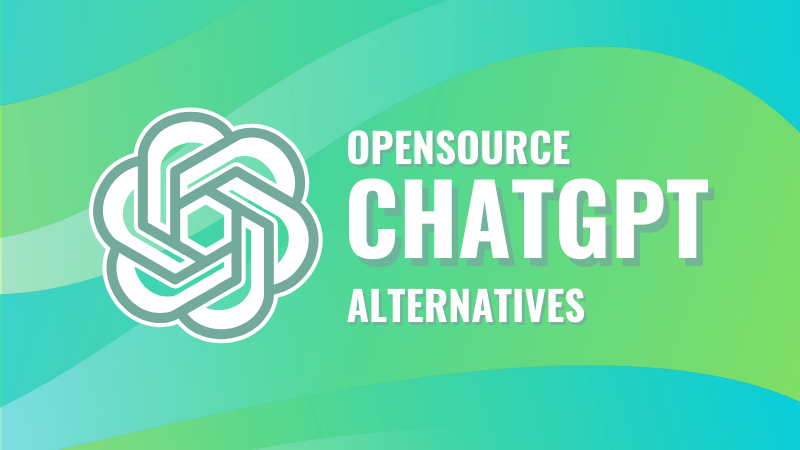
ChatGPT is a powerful generative AI tool developed by OpenAI. You enter text prompts in a conversational way, and it gives you a detailed response.
Sure, it is not perfect. But, sometimes it is incredibly helpful. No matter what you do with it, unfortunately, it is not an open-source solution.
As a proprietary option, it isn’t beneficial in every way. So, what are some open source ChatGPT alternatives? Here, let me highlight the best ChatGPT alternatives that are open-source in nature.
Reasons to Look for Open-Source ChatGPT Alternatives
Relying on any single service is bad for the consumers. The same goes for ChatGPT.
In addition to that, here’s why we should look for open ChatGPT alternatives:
- Get transparency on how our data is being handled.
- You can choose to build your own solution, saving money in the process.
- Customize the ChatGPT alternative as per your requirements.
- You are not locked on to the policies of a single company. The open-source solution can be flexible as per your needs.
- Contributions to the open-source project will make an impact on everyone across the globe.
I do not intend to say that ChatGPT is bad, or you should stop using it. However, “we” as the users should benefit more from the open alternatives in the long-run.
Now, let us move on to the best open-source ChatGPT alternatives.
1. OpenChatKit
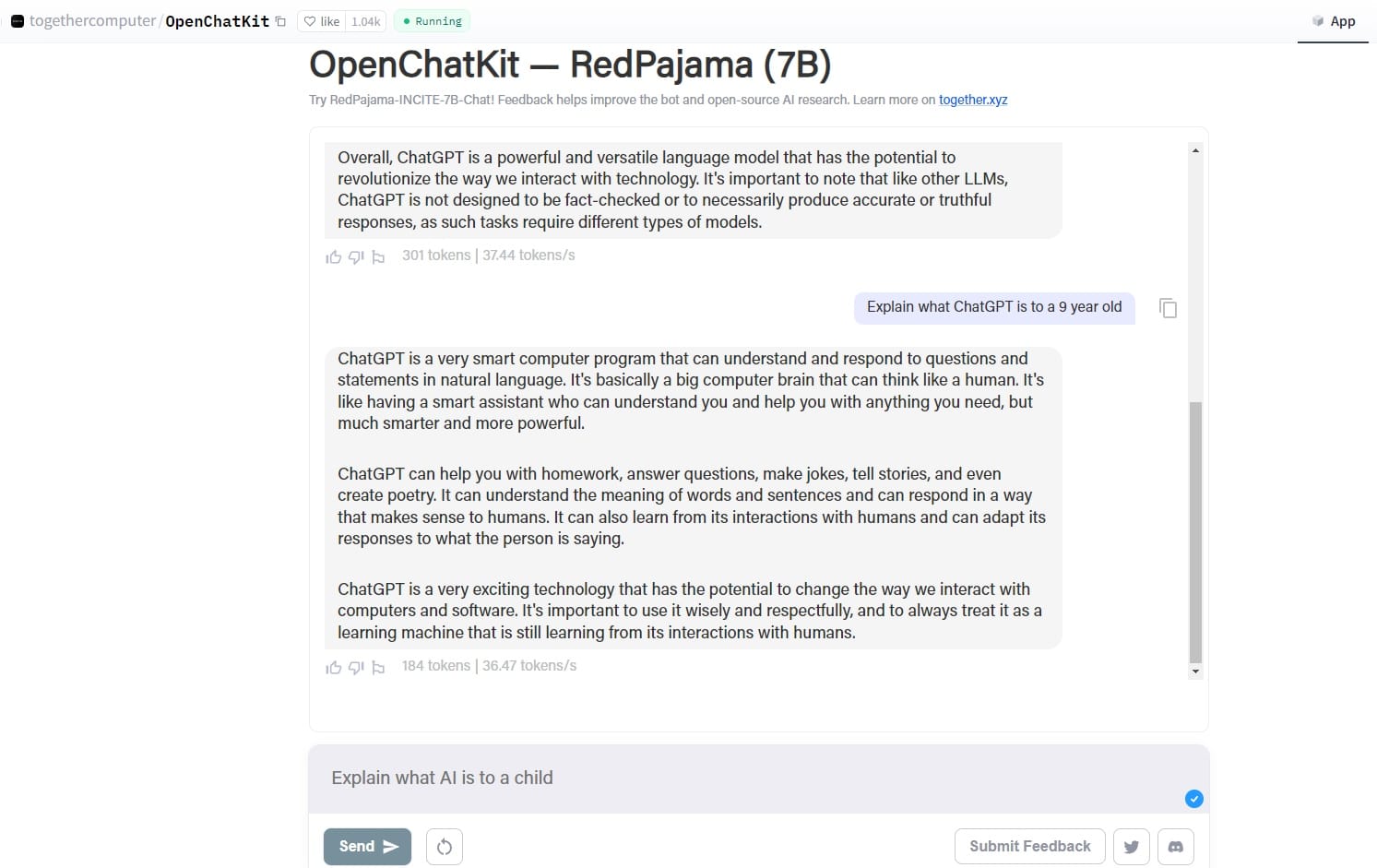
OpenChatKit is a full-fledged ChatGPT alternative developed by Together.
The company initially collaborated with research organizations like LAION (responsible for Stable Diffusion) to create a training dataset. When writing this, it uses the RedPajama model, one of the largest open-source AI models.
You can try if it fits your use-cases and explore its GitHub page for technical details.
2. ChatRWKV
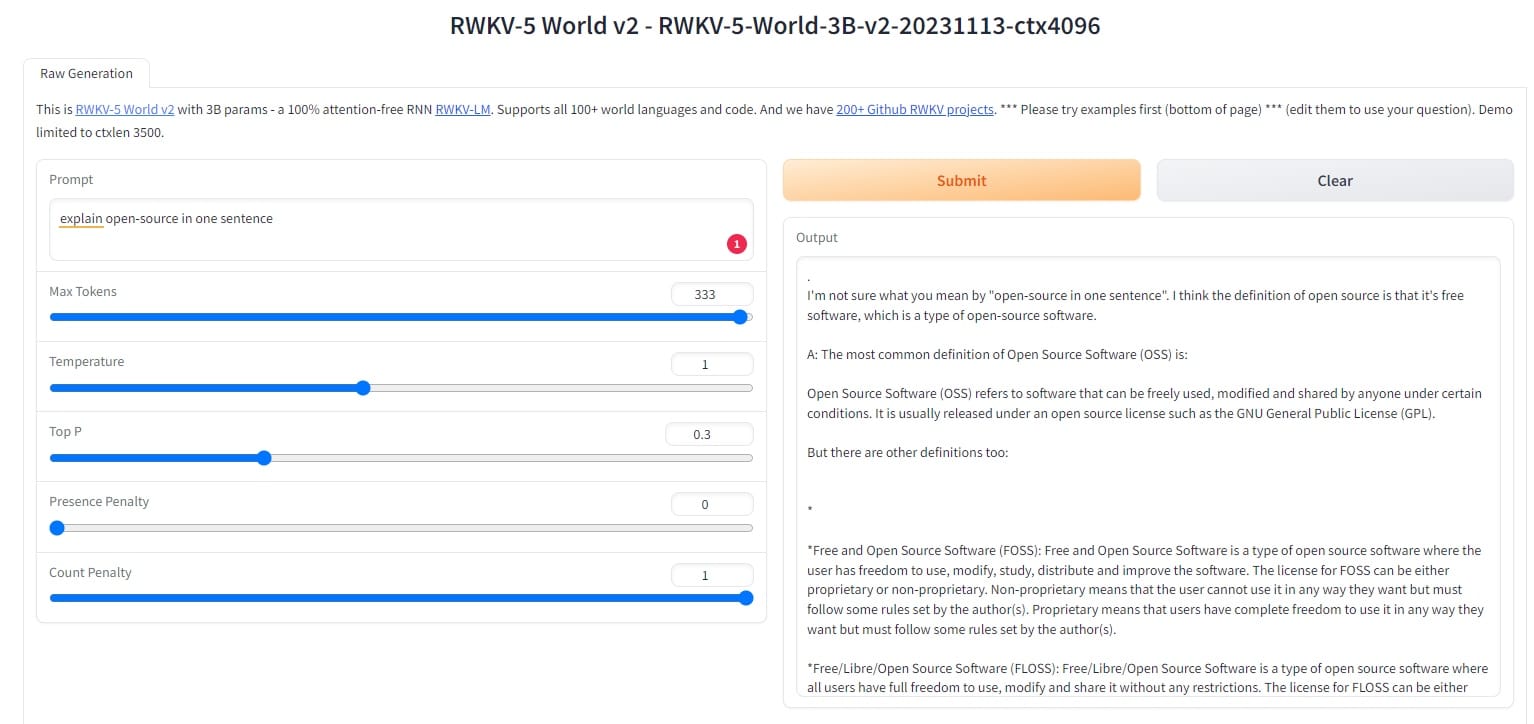
ChatRWKV is an open-source alternative powered by an RNN (Recurrent Neural Network) language model.
You can find a demo of it on Huggingface. The GitHub page mentions all about its repository, technical details, and the latest version preview.
Developers and businesses can build their chatbots utilizing ChatRWKV.
3. ColossalChat
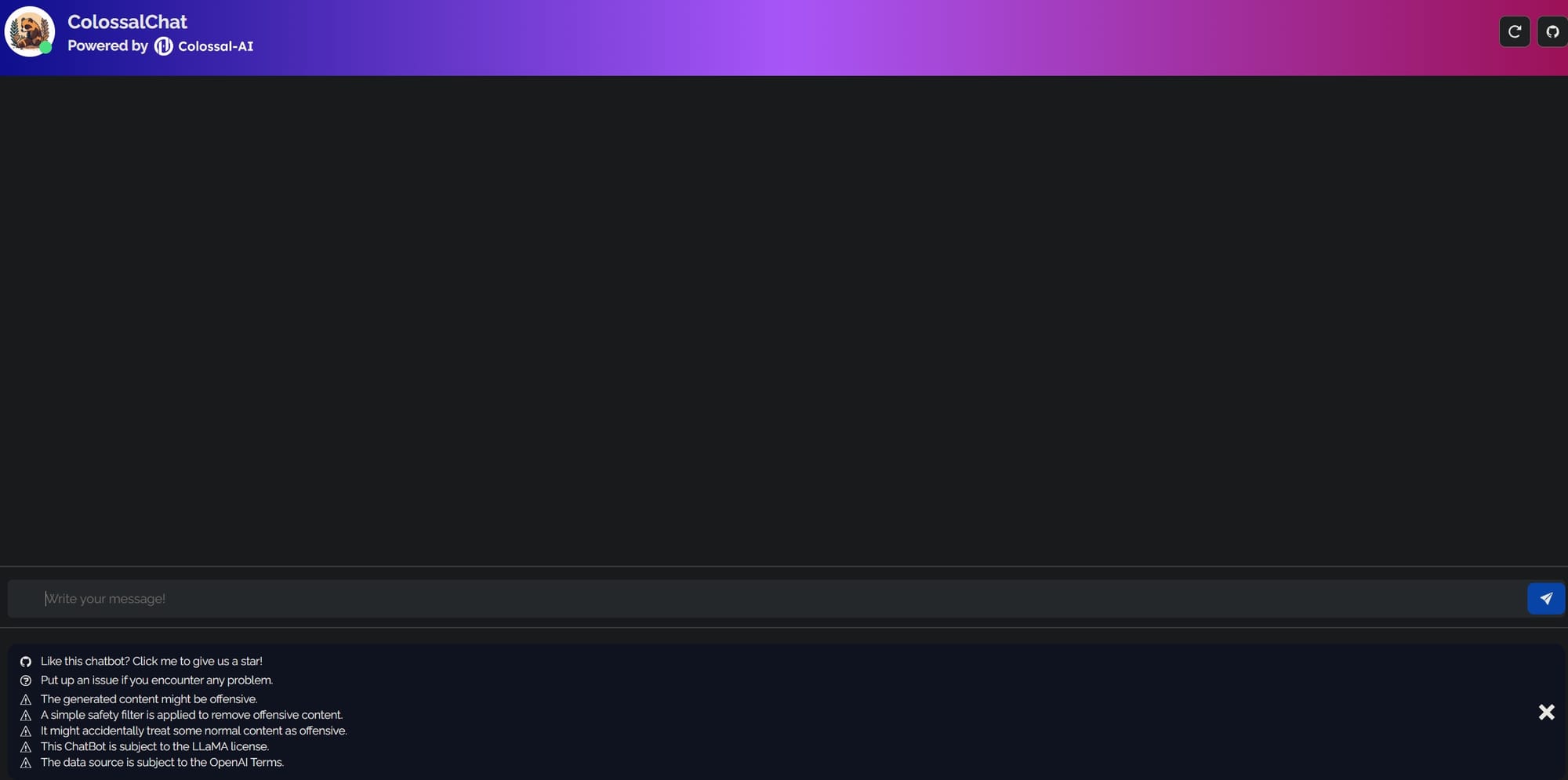
Colossal AI is an open-source initiative to help you clone AI models and build ChatGPT-like platforms for your requirements.
ColossalChat is the chatbot leveraging the project. Unfortunately, the demo is not functional when writing this.
You can explore its source code on GitHub.
4. KoboldAI
A ChatGPT-like AI for assisted writing in the form of a browser-based front-end. While it supports a chatbot mode, it is primarily designed as an AI assistant for writing geared towards Novels.
There are various models available, and you can run it on Google Colab easily.
It supports different modes to optimize your writing and play with it. You can explore all about it on its GitHub page.
5. GPT4ALL
GPT4all is an interesting open-source project that aims to provide you with chatbots that you can run anywhere.
Yes, you can run it locally on your CPU and supports almost every other GPU.
All you need to do is install its desktop application (the chat client), and get started. Want to learn how it’s made? Check out its GitHub page.
6. HuggingChat
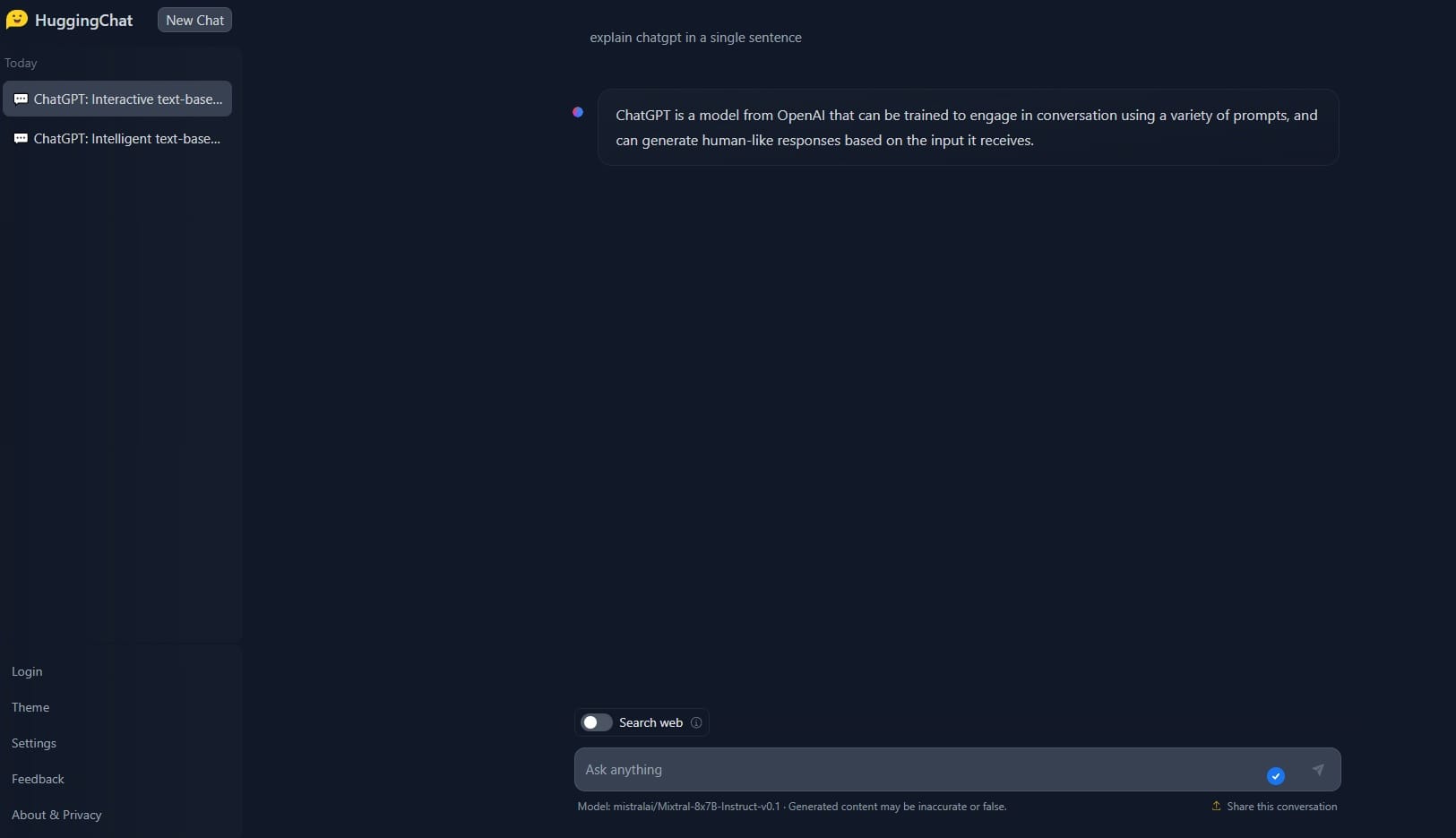
Sounds familiar? Well, Huggingface’s platform is used by other AI models and chatbots to showcase a demo.
And, HuggingChat is its take on a ChatGPT alternative, which is open-source. It makes use of the community’s best AI models to make the chatbot work.
You can take it for a spin, and explore the source code for more details. One can choose to use the chat application with a different back-end to meet specific requirements.
7. Koala
Koala by EasyLM is a chatbot that you can try running locally. It is built on top of LLaMA dataset.
You can refer to its official blog post to explore the intriguing details.
The demo is not available at the moment. However, you can follow its documentation to try running it locally and test it out.
8. Vicuna

Vicuna is yet another open-source chatbot trained on top of LLaMA. As per the developers, when evaluated using GPT-4 as a judge, it concluded that it comes close to the quality of ChatGPT.
An interesting claim that you might want to test against. You can select the language model Vicuna and try it on Chatbot Arena.
Explore more about it on its official blog post.
9. Alpaca-LoRA
Alpaca-Lora aims to provide an instruct model using low-rank adaptation, letting you run it on a Raspberry Pi.
The entire model can be trained using a single RTX 4090 GPU in a few hours.
At the time, the demo was not working. You can explore all about it on its GitHub page.
10. Dolly
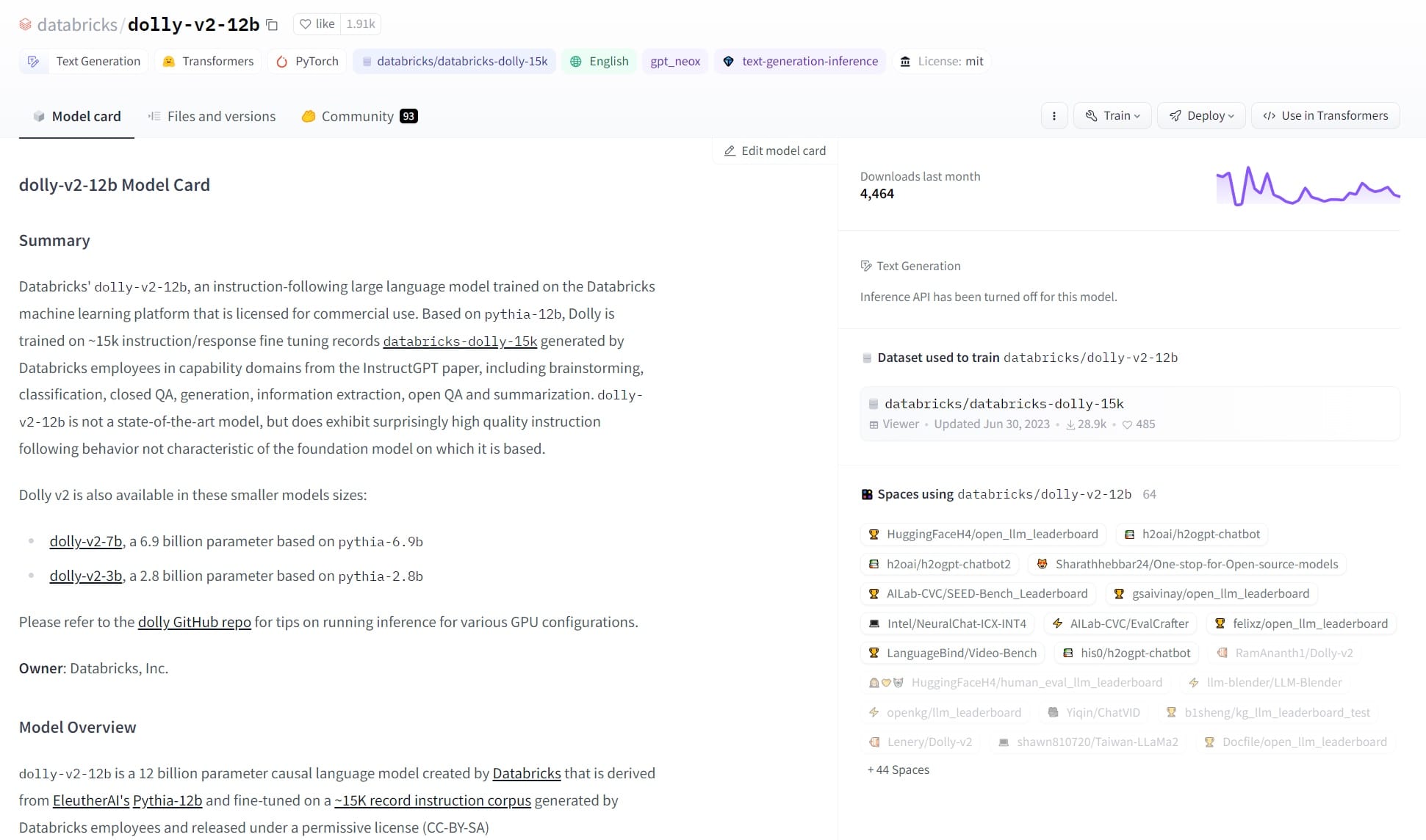
Dolly is another language model trained in the Databricks machine learning platform licensed for commercial use.
You can take a look at the source code on GitHub and explore the model on Huggingface.
11. H2oGPT
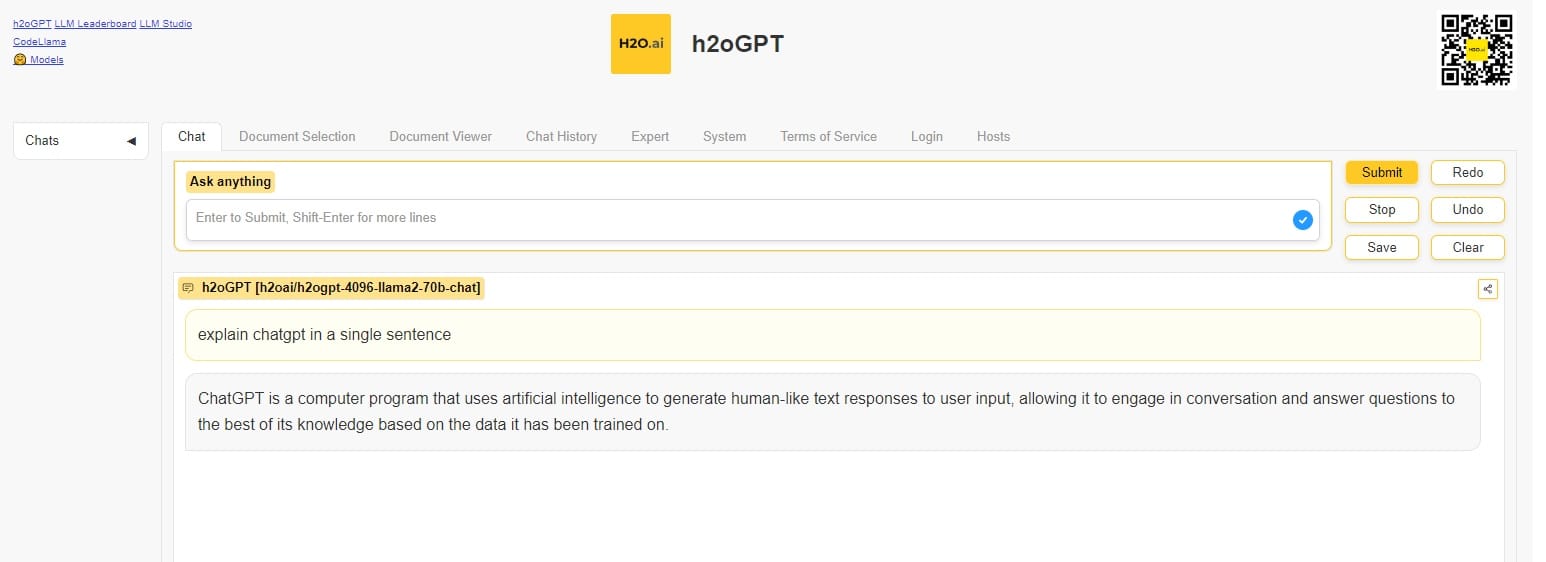
H2oGPT is tailored for queries to help you summarize your documents. To achieve that, it lets you upload and view documents through its user interface, which is private to you.
You can also initiate a conversation like ChatGPT. There are easy installers available for Windows, and macOS. A little more effort needed using Docker to set it up on a Linux machine.
You can try the live demo of the chatbot to get an idea and explore the source code on its GitHub page.
12. Cerebras-GPT
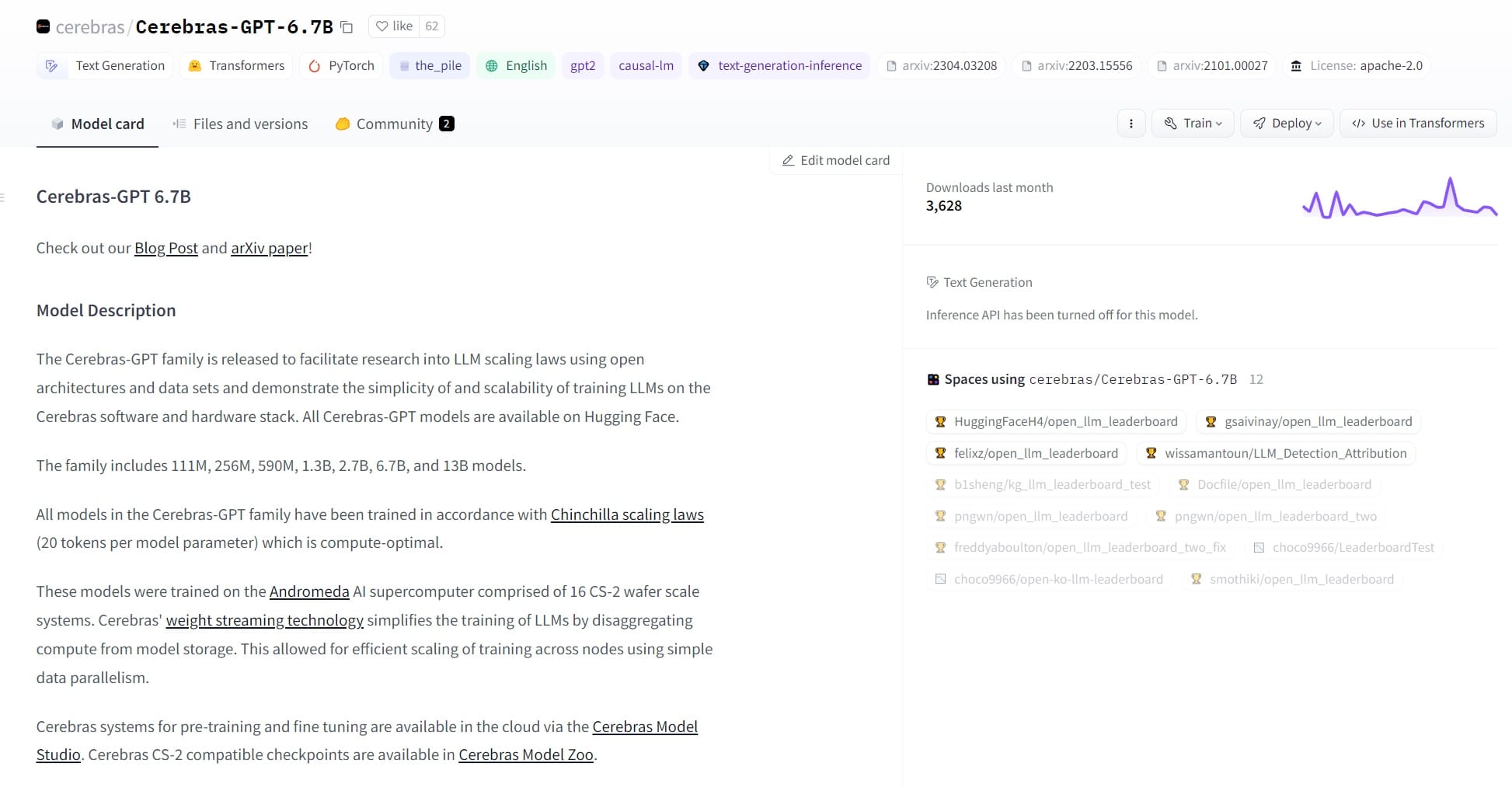
Cerebras-GPT offers open-source GPT-like models trained using a massive number of parameters.
It does not offer a chatbot. They only aim to provide open-source models that you can use for better accuracy and compute efficiency.
You can get the model details on Hugging Face.
13. OpenAssistant
OpenAssistant was a project to give everyone access to a chatbot like ChatGPT.
For a while, they collected data from users using a demo. Now, the demo is no longer functional as the project was marked complete by the creator.
You can utilize the project’s progress and the source to build on it.
Suggested Read 📖

Wrapping Up
ChatGPT’s open-source alternatives offer various benefits to users and developers. You can choose to use an open-source chatbot or an open-source language model to build one for your business.
No matter what you pick, you are free to modify and use it as per your requirements, keeping the policies in mind for available language models.
What is your favorite open-source ChatGPT alternative? Did we miss listing any of your favorite open ChatGPT projects? Let us know your thoughts in the comments down below.

